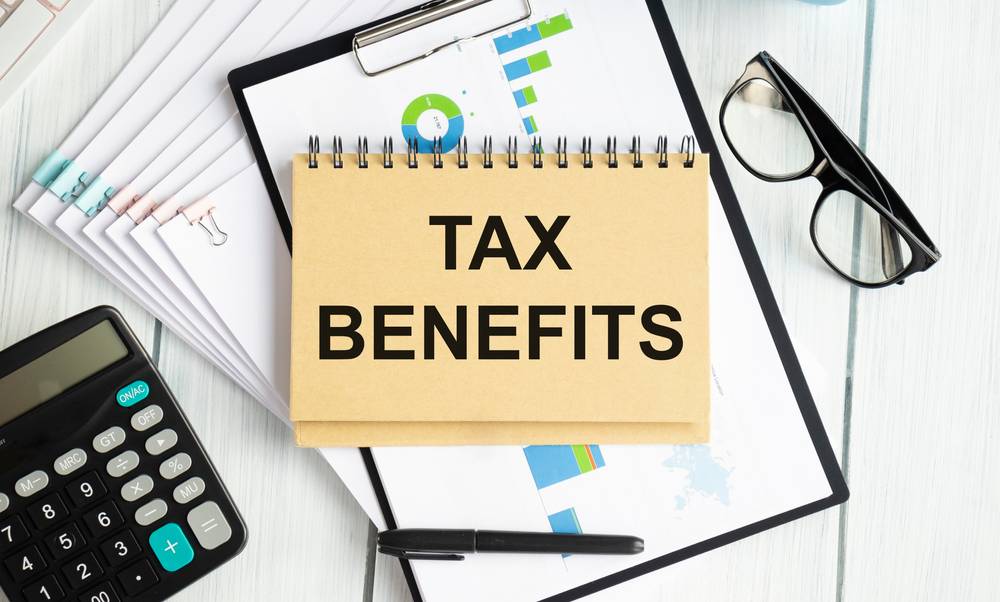Investing in real estate is a lucrative way to grow your wealth. Ever since time immemorial, commercial real estate has created millionaires. It is an excellent investment choice when you want higher returns on investment.
Higher return on investment is not the only benefit you get from investing in real estate, there are also tax benefits. However, you should understand what is available and how to capitalize on it. Here are some tax benefits you will enjoy by investing in commercial real estate.
1. Deductions
Deductions are one of the tax benefits you’ll enjoy from your real estate investment. You can deduct expenses associated with your investment in property, like mortgage interest, property tax, property management fees, and property insurance. You can also deduct any expenses related to the maintenance and repairs of your property.
When you have a real estate property, you’ll need to do repairs to ensure it remains in good condition. Examples of repairs you can do on your property include painting, fixing leaks, and replacing broken parts. You can also deduct the mortgage interest from the secondary residence. The deduction applies to newly refinanced mortgages and home purchases, home equity loans, and home equity lines of credit. Make sure you itemize your deductions carefully. You can take deductions on any expense directly associated with your real estate. The expenses include:
- Mortgage interest
- Property taxes
- Property management fees
- Property insurance
- Repairs and maintenance costs
You can also write off the amounts you spend on running your real estate property. The qualified business expenses include:
- Office space
- Advertising
- Legal and accounting fees
- Business equipment
- Travel
The above deductions reduce your taxable income, which is money you can save when filing taxes. When making the deductions, ensure you are detailed and keep accurate records. You may need the records when the Internal Revenue Service (IRS) performs an audit on your property.
2. Capital Gains
Capital gains are the profits you get when you sell your commercial property. Capital gains give you a lower tax rate. Capital gains are taxed in two ways:
Short-term Capital Gains
Short-term capital gains are the profit you get when you sell an asset you have owned for a year or less. You don’t get any special tax benefits from short-term gains. The tax for short-term gains ranges from 10 to 37% of your income tax bracket.
Long-term Capital Gains
They are derived from selling any property you have held for longer than one year. They have a lower tax rate compared to short-term gains. You’ll, therefore, have more money in your pocket.
Make sure you leverage the long-term capital gains. With long-term gains, you are taxed less and you can use the previous deductions to reduce your taxable amount.
3. 1031 Exchanges
The IRS allows you to sell your property and use the profits to buy another property with an equal or higher value. That is what is known as a 1031 exchange, and it does not have tax. You can, therefore, postpone your tax payment until you sell the next property. You also have the option to go for a 1031 swap.
The 1031 exchange tax benefit allows you to roll over your tax payment while gaining from one investment. A qualifying exchange is one with minimal or zero tax liabilities. It means that you can rollover any capital gains from one investment to another and avoid taxes until you sell your property. You, however, must hold the asset for at least a year. Capital gains taxes will be paid on the final sale of the property that doesn’t include an exchange. Investment property must meet the following criteria to complete a 1031 exchange:
- Properties must be exchanged for an asset like real estate.
- The value of the property being replaced must be equal to or greater than the resigned property.
- The exchanged property has to be held for business or trade purposes.
4. Depreciation
Over time, your real estate will start to break down and depreciation is a way to recompense for the wear and tear. Depreciation is a net loss on your real estate investment that depends on the profits you realize from your commercial property. Depreciation refers to the incremental loss of an asset’s value due to wear and tear.
As a real estate investor, you are allowed to deduct depreciation as an expense. You’ll, therefore, lower your taxable income and your tax liability. You can deduct depreciation for the entire life of your commercial property. The amount you can deduct for depreciation purposes depends on the following:
- Recovery period
- Property value
- Depreciation method
Keep in mind that the depreciation tax deduction will not last forever. You’ll have to reclaim the depreciation value when selling your real estate property. Even though you get a substantial write-off each year, you do not spend the money since depreciation is a non-cash expense.
Most investors use the Modified Accelerated Cost Recovery System (MACRS) depreciation method. The depreciation method allows you to deduct depreciation on your commercial real estate for 39 years and 27.5 years if it is a residential property. Depreciation offers you a way to save money every year.
In Closing
One of the ways you can achieve long-term wealth is by understanding the property investment tax benefits. When you take advantage of the tax breaks, you’ll be on your path to financial freedom. If you have commercial real estate, you’ll enjoy the above benefits. If you have not invested yet, contact us today to start your journey and reap the tax benefits of owning commercial property.

